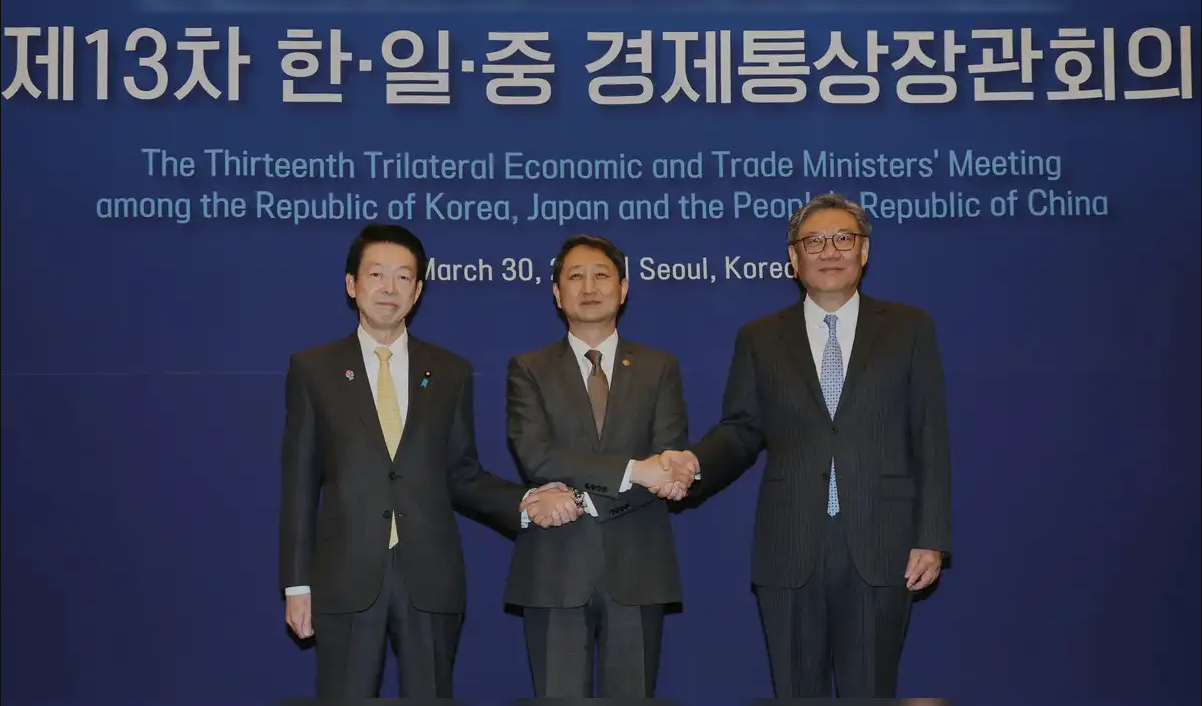
Zhang Yun, Professor, School of International Relations, Nanjing University
Apr 11, 2025
The tariffs will not spell the end of alliances between the United States and Japan or South Korea, but they are likely to promote a strategic awakening in both countries and accelerate the integration process in East Asia.
Lucio Blanco Pitlo III, President of Philippine Association for Chinese Studies, and Research Fellow at Asia-Pacific Pathways to Progress Foundation
Dec 13, 2024
ASEAN and BRICS are both international cooperative organizations, much like the G7 - except both are led by non-Western aligned nations. The addition of Indonesia, Malaysia, Thailand and Vietnam to BRICS raises the question of whether these groups can harmonize their goals without disrupting ASEAN's long-standing geopolitical orientation.
Lucio Blanco Pitlo III, President of Philippine Association for Chinese Studies, and Research Fellow at Asia-Pacific Pathways to Progress Foundation
Nov 29, 2024
The Regional Comprehensive Economic Partnership (RCEP), the world’s largest trade pact, integrates 15 diverse economies to revitalize globalization, enhance trade rules, and bolster ASEAN’s centrality in regional trade. Amid U.S.-China tensions, RCEP offers opportunities for supply chain shifts and industrial upgrades while positioning China to deepen ties with developing regions through initiatives like the Belt and Road.
Liu Chang, Assistant Research Fellow, Department for American Studies, CIIS
Apr 23, 2024
America is holding ASEAN countries back from a central role in its Indo-Pacific Strategy, but their self-confidence is growing. It’s not lost on anyone that Southeast Asia’s strategic position has not changed in the minds of U.S. decision-makers. Meanwhile, China offers welcome alternatives.
Brian Wong, Assistant Professor in Philosophy and Fellow at Centre on Contemporary China and the World, HKU and Rhodes Scholar
Apr 19, 2024
ASEAN’s future seems bright, and both the U.S. and China want to court the region’s nations into partnerships. Neither side holds a clear advantage, though that may change after the U.S. election this year.
Richard Javad Heydarian, Professorial Chairholder in Geopolitics, Polytechnic University of the Philippines
Oct 20, 2023
Indonesia is one of the world’s most populous nations, and is rising in regional and international influence. Taking charge as ASEAN chairman amid a contentious time among member states is Indonesia’s chance to prove its ability to lead Southeast Asia and the world in the coming decades.
Philip Cunningham, Independent Scholar
Sep 29, 2023
Xi Jinping's absence from the G20 summit suggests a shift in China's foreign policy towards creating alternative international alliances. There are also questions about China's intentions and what the potential consequences will be if China's Foreign Minister Wang Yi doesn't address protocol and logistical issues for future international events.
Li Huan, Deputy Director at CICIR's Institute of Hong Kong and Macao Studies, and Distinguished Research Fellow, Xiamen University
Sep 05, 2023
If a report in the Washington Post is true, the United States is playing politics by blocking John Lee Ka-chiu’s attendance at an upcoming APEC meeting in San Francisco. This must not be allowed to become a spark that starts another prairie fire in China-U.S. relations.
Zhai Kun, Professor at School of International Studies; Deputy Director of Institute of Area Studies, Peking University
Yin Ke, PhD candidate at the School of International Studies, Peking University
Sep 05, 2023
The ongoing Second Thomas Shoal incident could trigger misjudgments and a wider conflict. Keeping the peace will require a comprehensive approach to crisis management, especially where foundational principles are involved.
Chen Jimin, Guest Researcher, Center for Peace and Development Studies, China Association for International Friendly Contact
Jul 27, 2023
America’s Indo-Pacific Strategy is not only at odds with the regional vision to which ASIAN is committed but it affects the region’s development environment. As a result, ASEAN will steer a middle course to protect its central role.
Back to Top

- China-US Focus builds trust and understanding between the U.S. and China through open dialogue among thought leaders.
- Our Offerings
- Topics
- Videos
- Podcasts
- Columnists
- Research Reports
- Focus Digest
- Stay Connected
-
Thanks for signing up!
- Get the latest stories from China-US Focus weekly.